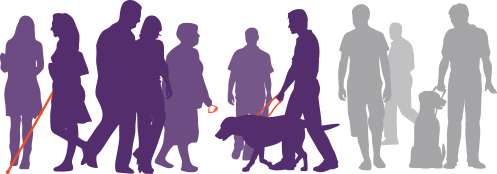The impact of Non-24 can be severe, yet the disorder may be underdiagnosed
It is highly prevalent in individuals who are totally blind1,2
- Onset can occur at any age in totally blind individuals after the loss of light perception and, if left untreated, the course of Non-24 becomes chronic3
Up to 70%
of people who are totally blind have Non-24
“Most totally blind people live with circadian rhythms that are not synchronised with the 24 hour world, inducing a disorder that some patients describe as a disability worse than the blindness itself.”
-Steven Lockley et al. on Non-244
References: 1. Sack RL, et al. Sleep Med Rev. 2001;5(3):189-206. 2. Dressman MA, et al. Poster presented at: 26th Annual Meeting of the Associated Professional Sleep Societies, LLC; June 10, 2012; Boston, MA. Poster 49. 3. American Academy of Sleep Medicine. International Classification of Sleep Disorders. 3rd ed. Darien, IL: American Academy of Sleep Medicine; 2014. 4. Lockley SW, et al. Lancet. 2015;386(10005):1754-1764.
![HETLIOZ[R] (tasimelteon) capsules 20mg](/assets/header/header-logo-ed4a0eafea0a6d3ceec1cd9c4d717dea66814d23c9da61298b3f9181ff9546a6.jpg)


